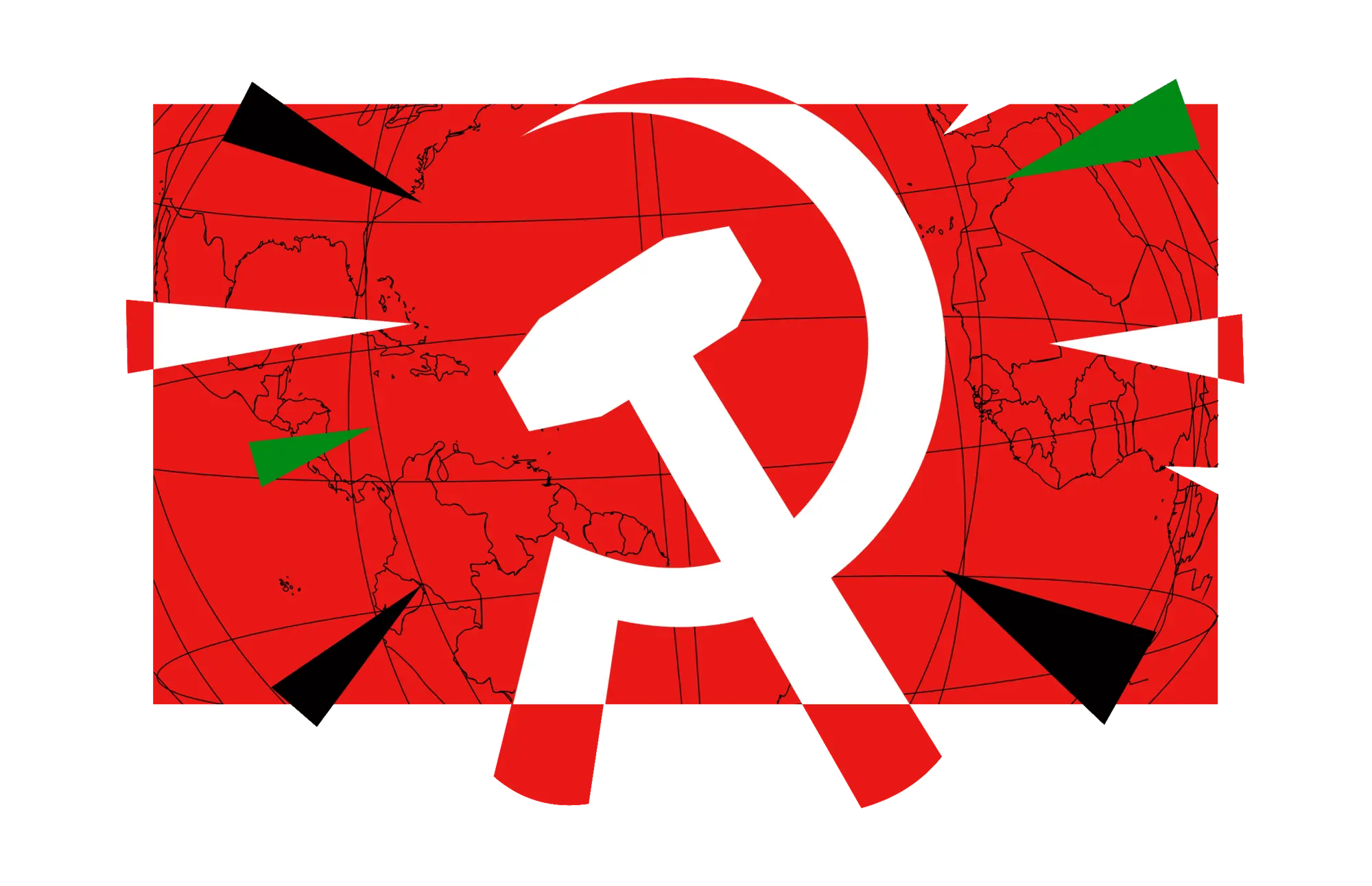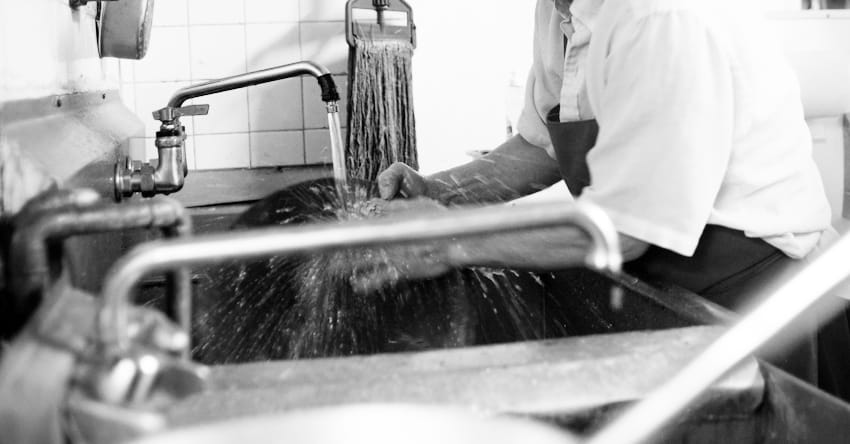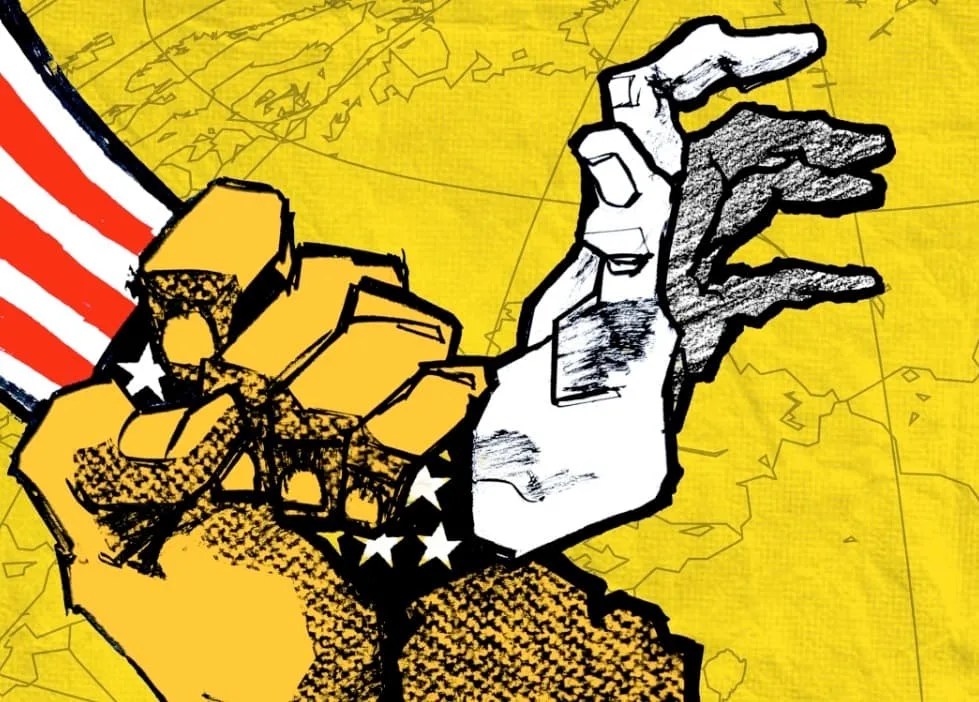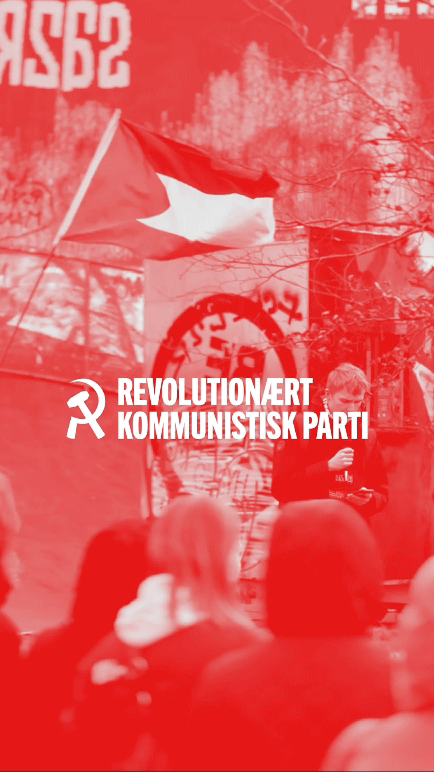Immigrants, refugees and migrant workers are blamed in Danish politics for all kinds of misfortune. “The Danish Model” with its reasonable wages and working conditions, is often highlighted as something unique. But for a growing number of workers, reasonable wages and working conditions are a pipe dream. REVOLT has spoken with Imran, who is originally from Pakistan, about what it’s really like to be a foreign worker in Denmark.
We have interviewed Imran, about his working conditions as a migrant worker in Denmark. After finishing his master‘s degree from the IT University in Ireland, he needed to find a job with a yearly pay off about €30.000 in order to stay in Ireland. “It was completely impossible”, Imran tells us. In 2011 he instead got a work permit in Denmark, and travelled here to find work.
“It was very difficult to find a job”, Imran explains. “I didn’t know anyone, and as long as you don’t speak Danish, you can’t use your education in Denmark. The problem is that you use all your time on hard jobs, which pay very little, and so you don’t have time to learn Danish”. So during his first five months of living in Denmark, he was unemployed. He lived off the savings he had accrued in Ireland and off money he borrowed from friends.
After the five months he got a job as a dishwasher at a restaurant at Bakken in Klampenborg. He could only get the job if he was willing to moonlight for a meagre 60 kr. An hour. No work schedule was given, but the employer would call him up every other moment in order to call him to work.
Imran found it to be backbreaking work, and after 15 days his employer fired him. After another short period of unemployment Imran got a new job through his contacts in the Pakistani community in Denmark, this time as a dish washer in a pharmaceutical company’s canteen.
“It was hard work. It was like the restaurant at Bakken”, Imran tells us. “I worked all by myself in a canteen with five cooks, so it was a big place. It was very busy, and if I couldn’t finish all my tasks, I had to stay 30, 40, 60 minutes extra, with no pay.” Imran explains that if he didn’t stay to work for free, he would have been fired.
Even though Imran worked more than 37 hours full time, he still only got kr. 10,000-11,000 pay a month. “The hourly wage after taxes was the same as when moonlighting at Bakken.”
Imran was hired through a subcontractor, who rented him out to the pharmaceutical company. After seven months he made an agreement with his employer that he could travel to Pakistan to see his family for three months. At this point Imran had not seen his family for four years.
The subcontractor assured Imran that there would still be work for him when he returned to Denmark. “That turned out to not be true”, Imran says with an ironic smile. Once more he was thrown into unemployment.
5-Star Working Conditions
After two months without work, one of his roommates got him a job as dish washer at a five-star hotel, which is the job Imran has today. But even though this sounds like a prestigious place, the working conditions are even worse than in earlier places.
“Formally, we’re hired on part time contracts, which give us 40 hours a month. But the agreement under the table is that we have to work 150, 160, 170 hours a month”, Imran explains. Here too, a subcontractor is the actual employer for Imran and his colleagues. Imran explains that the subcontractor uses the formal 40-hour contract to pressure the employees into not making trouble. “If you make trouble, you’re simply set to the official 40 hours a month, which nobody can survive on”.
The contractor has thus built a system, so that none of his employees dare speak against him, or create any kind of trouble. He has had the contract with the hotel for 15-20 years, so everyone at the hotel is aware that this is how it works.
Imran tells us how you need to start out with some free days of work for the subcontractor, if you want any chance of getting a job with him: “If he likes you, you get to stay. If he doesn’t like you, you’re just out”. The subcontractor happily makes use of this when there are large events at the hotel, where he can make use of the free labour. At parties with up to 1500 guests, only 10 people in the kitchens are serving guests: “We are under great pressure in such situations, and people are extremely stressed out”.
Work When the Sun Has Set
This is not a regular 8-16 job. For Imran, work hours are 21:00 until 04:00 at night. It breaks his sleeping schedule, and he has a hard time doing other things throughout the day. “I work all year round, also on vacations. I have been working during the last two Christmases” Imran tells us.
The pay is marginally better than the other places, and Imran makes kr. 115 an hour. But that’s all. The subcontractor provides no bonuses for regular night time work, or for the work done on weekends or on holidays. “He gives nothing extra. I don’t even get a bonus for working on Christmas.” Imran says. Because of this, in practical terms Imran earns much less than one normally would in his situation.
“You have to regularly update your visa, which I spend many thousand kroners a year doing. But you can’t renew it, if you are unemployed, or haven’t been working enough in the preceding period”, Imran explains. At his workplace, this creates a constant fear of being fired, getting sick, or having to take care of sick family.
To Imran there is not much difference between living in the so called social democratic welfare state or the Gulf monarchies, he explains.
The visa rules in Denmark mean that you have to earn kr. 326.000 a year to keep your work visa in Denmark. “But the rules are constantly changed and tightened. Who knows when there will be further tightening?” Imran says, looking tiredly at the table.
Imran has to live and work under these conditions for six years to be eligible to apply for Permanent Residency.
Union – What Union?
For workers in Imran’s situation, it makes no sense to obtain membership in an unemployment fund since they will be thrown out of the country if they become unemployed. But a union isn’t a common sight either: “I haven’t seen the unions at any one of the places I’ve worked”.
He has himself been a member of a union for several years, and some of his colleagues are trying to organise as well: “One colleague was a member of Krifa. We had been stressed at work for a long period of time, which resulted in a fight between the employee and the boss,” Imran tells us. The colleague was fired right after the fight, and Krifa did nothing to help him.
According to Imran, a major problem is that neither representatives from the union, nor the leftist parties, are present at workplaces like his: “we’re left at the mercy of the capitalists – and the state doesn’t care” he says.
A Problem in Capitalism
Imran explains that it’s not just in the kitchen and canteen business that conditions are this way, but in all fields, which makes great use of underpaid foreign labour. “The problem is first and foremost, that the company isn’t responsible for the subcontractor. If he is exposed for breaking the law, he will simply declare bankruptcy and start over again”, Imran tells us. This creates a vicious circle, and the first step to breaking it is to make the big companies responsible for their subcontractors.
But the root of the problem lies in the system: “It is not immigration, which to a high degree is caused by crises and wars in different parts of the world, which is the problem. I don’t think it’s realistic to solve the problems of immigration within capitalism. How could that be done, when capitalism isn’t even capable of solving the ethnic conflicts within national borders all over the world?” Imran asks.
For Imran, it’s about unity giving strength: “Unions and the left should unify the working class, no matter which nationality or skin colour a person has. Otherwise, the only loser is the working class.”
Imran is a fictional pseudonym, made to protect him from being fired from his job. Imran’s identity is known to the editorial staff.
This article has been published in a special edition of REVOLT
[Join the struggle – join Revolutionære Socialister – contact us]






